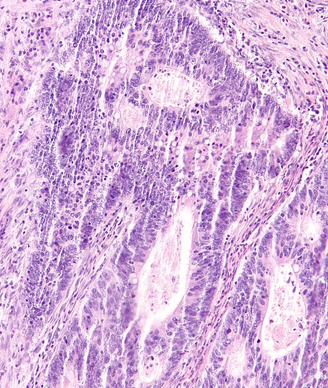Performance Status, Disease Stage Impact Regorafenib Outcomes in mCRC
Real-world data may elucidate the characteristics and factors that influence long-term remission with regorafenib among patients with metastatic colorectal cancer.
“These results increase our understanding of patient profiles and factors that influence the effectiveness of regorafenib in real-world clinical practice,” according to the study authors.

Characteristics including performance status and disease stage correlated with how patients with metastatic colorectal cancer (mCRC) achieved long-term remission following treatment with regorafenib (Stivarga), according to findings presented during the 2024 Gastrointestinal Cancers Symposium.
Specifically, patients with long-term responses had favorable Eastern Cooperative Oncology Group (ECOG) performance status at regorafenib initiation; less advanced disease at the time of diagnosis; and many were also recipients of prior bevacizumab (Avastin).
“This real-world study, performed in the USA and outside of a controlled clinical trial setting, aimed to determine the proportion of patients who had a long-term response to regorafenib,” the authors said in their poster presentation.
The study analyzed data from 2326 patients who started regorafenib monotherapy between July 1, 2013, and December 31, 2022. A total of 346 patients (15%; median age, 65 years) had a long-term remission of 5 or more months, with 503 patients (22%; median age 65 years) having a long-term remission of 4 months or longer.
Among the cohort of patients with a remission lasting 5 months or longer, less than half (46%; n=160) had stage IV disease at the time of diagnosis. The majority (68%; n=237) had an ECOG performance status of 0-1, and/or received prior bevacizumab (64%; n=221). Of patients who were tested at index, the median carcinoembryonic antigen (CEA) level was 35 ng/mL (range, 9-139). Slightly more than half (51%) had a KRAS mutation, and 5% had a BRAF mutation at index.
The median time from CRC diagnosis to index date was 39.2 months (range, 25.1-64.1), and 33% and 23% received regorafenib as a third-line or fourth-line treatment, respectively. Median time to regorafenib discontinuation was 7.3 months (95% CI, 6.9-7.8).
Findings showed that patient characteristics were similar among patients who had remissions lasting 4 months or longer, with 48% (n=241) having stage IV at diagnosis, 66% (n=332) having an ECOG performance status of 0-1; 68% (n=341) having prior bevacizumab; median CEA level of 40 (range, 9-152); 54% and 6% harboring KRAS and BRAF mutations, respectively.
Median time from diagnosis to index was 38.6 months (range, 24.8-62.8), with 34% and 23%, respectively, receiving regorafenib as a third-line or fourth-line therapy. The median time to treatment discontinuation was 6.0 months (95% CI, 5.-6.2).
Among patients who started regorafenib therapy before the year 2019, (n=1,070), 14% had a remission lasting 5 or more months, while 21% had a remission lasting 4 months or longer. In patients who started the therapy 2019 or later, (n=1,256), 16% and 22% had remissions lasting 5 months and 4 months or longer, respectively.
“These results increase our understanding of patient profiles and factors that influence the effectiveness of regorafenib in real-world clinical practice,” the poster read.
Reference
Kim RD, Pan X, Ostojic H, et. al. Real-world (RW) study in patients (pts) with metastatic colorectal cancer (mCRC) with long-term responses to regorafenib in the USA. J Clin Oncol 42, 2024 (suppl 3; abstr 48). doi:10.1200/JCO.2024.42.3_suppl.48
Gedatolisib Combo With/Without Palbociclib May Be New SOC in PIK3CA Wild-Type Breast Cancer
December 21st 2025“VIKTORIA-1 is the first study to demonstrate a statistically significant and clinically meaningful improvement in PFS with PAM inhibition in patients with PIK3CA wild-type disease, all of whom received prior CDK4/6 inhibition,” said Barbara Pistilli, MD.